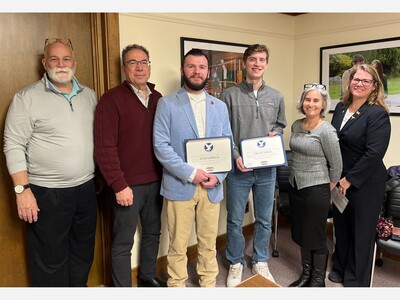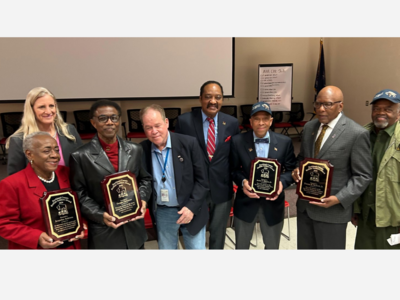New York’s Energy Efficiency Guidelines: Are Co-ops and Condos Making the Grade?
What are New York City’s energy efficiency guidelines, and are co-ops, condos and other residential buildings making the grade? How will requirements impact buyers and sellers, and affect new development? Legal, energy and real estate experts explained letter grading, strategies for getting up to code and penalties for noncompliance on a virtual panel Aug. 11 hosted by Hudson Gateway Association of Realtors, Inc. (HGAR) and OneKey® MLS.
“Getting the Deal Done in New York: ABCs of Building Gradings and Cost of Noncompliance” featured Bruce Cohen, real estate attorney and partner, Cohen and Frankel LLP, New York; Dennis DePaola, Executive Vice President and Director of Compliance, Orsid Realty Corp., New York; Peter Goldberg, Pilot Manager, Con Edison, New York, and Juan D. Reyes III, partner, Faegre Drinker Biddle & Reath LLP, New York.
Richard Haggerty, CEO of HGAR and President and Chief Strategic Growth Officer of OneKey® MLS, the regional multiple listing service for New York, opened with a market update. He cited OneKey® MLS regional data comparing this past July to July 2021 that showed a 15 percent decline in single-family home sales and a 26 percent drop in condo sales.
“This is not a time to panic,” Haggerty said. “What happened in 2021 was just an overheated market rebounding from Covid and benefitting from a lot of buyers looking for larger properties on more land. That market was not sustainable. We’re seeing a market correction that needs to happen to create a healthier market overall.”
The event was moderated by Brian D. Tormey, NTP, President of TitleVest, a leading NYC-based provider of title insurance and related real estate services. The hour-long discussion focused on energy guidelines for New York City, including condos and co-ops; the energy efficiency grading system; and the certification process and fines for noncompliance.
DePaola, of Orsid Realty, outlined the regulations, which he noted apply to all buildings of 25,000 square feet and up. He pointed to the Climate Mobilization Act as “one of the most ambitious local efforts in the nation to reduce carbon emissions in New York City.”
“The goal is to reduce carbon emissions by 40 percent in 2030 and 80 percent by 2050,” DePaola said. “This is New York City’s first attempt to use the stick approach, as opposed to the carrot (programs/incentives). Buildings face the initial carbon emission threshold in 2024, and then a lower threshold in 2030. Buildings that exceed the carbon emission caps will face steep penalties. So, buildings will be on the clock in 2024!”
DePaola estimated 80 percent of New York City buildings subject to the law will see fines by the 2030 threshold, and those penalties could be some of the priciest in the world.
The panel explained the “letter grade” posted on buildings is a general indication of a building’s efficiency standards, but doesn’t necessarily translate to the estimated emissions.
“The letter grade is ultimately about how much energy you’re using relative to similar buildings, but different forms of energy have different carbon intensities,” said Goldberg, of Con Edison. “If you’re using a carbon-intensive fuel, like fuel oil, then you might be emitting a lot of carbon even though you’re not using a whole lot of energy.”
Cohen, of Cohen and Frankel, discussed the regulations’ potential impacts on transactional real estate from a legal standpoint, and how cost concerns could factor into negotiations and pricing.
“This is a wake-up call,” Cohen said. “It’s on the horizon and the bottom line is, ‘How much is it going to cost, and how are you going to pay for it?’ Knowledge is power, so we need to start adding items into our due diligence and asking specific questions about energy efficiency. These things eventually are going to be baked in, and we could see price reductions or sellers putting money into escrow to cover some of these costs.”
Reyes, of Faegre Drinker, cautioned managing agents, boards and other representatives to be proactive and begin brokering a conversation with the building department.
“It’s important to get ahead of this,” Reyes said. “There is a little time before they actually put in that first penalty, so find out what the building’s requirements are and how much it is going to cost to upgrade. Try to start talking to the building commissioner’s office to figure out how you are going to interact and how you’re going to be in compliance. It should be a friendly discussion – you’re always better off settling these things before it becomes a major issue.”
Goldberg noted some of the programs and resources available from Con Edison to help fund energy efficiency retrofitting and other actions. “Last year, Con Edison gave more than $200 million in incentives to costumers … $34 million of that went to multi-family buildings, including condos,” he said. “Engage with Con Edison. Be proactive. Figure out what you can do now and make a plan for things you have to do in the future.”
Haggerty agreed: “If we are proactive and recognize that we’ve got to try and solve this problem, then we are all going to be much better off.”
For more, view the webinar here.
For information about Con Edison’s programs, visit Save With Rebates and Energy Saving Incentives | Con Edison.
Letter grades and other information are available on the NYC Department of Buildings’ website:
https://www1.nyc.gov/site/buildings/industry/dob-now-safety.page
“Getting the Deal Done” is part of the “Be Your Best” webinar series created by HGAR and OneKey® MLS, to help Realtors and agents navigate a changing landscape amid the pandemic. The event was sponsored by TitleVest.
About OneKey® MLS
OneKey® MLS has 46,000-plus subscribers and serves Manhattan, Westchester, Putnam, Rockland, Sullivan, Orange, Nassau, Suffolk, Queens, Brooklyn, and the Bronx. It was formed in 2018 by the Hudson Gateway Association of Realtors and the Long Island Board of Realtors.
About Hudson Gateway Association of Realtors®
The Hudson Gateway Association of Realtors (www.hgar.com) is a not-for-profit trade association representing more than 13,000 real estate professionals in Manhattan, the Bronx, Westchester, Putnam, Rockland and Orange counties. It is the second-largest Realtor association in New York, and one of the largest in the U.S.
PHOTO CAPTION:
Featured in the Aug. 11, 2022 webinar, “Getting the Deal Done in NY: ABCs of Building Gradings and Cost of Noncompliance,” were (top row, from left); Richard Haggerty, CEO of HGAR and President and Chief Strategic Growth Officer, OneKey® MLS; Brian Tormey, NTP, President, TitleVest; and Dennis DePaola, Executive Vice President and Director of Compliance, Orsid Realty Corp., New York. (Bottom row, from left): Juan D. Reyes III, partner, Faegre Drinker Biddle & Reath LLP, New York; Bruce Cohen, real estate attorney and partner, Cohen and Frankel LLP, New York; and Peter Goldberg, Pilot Manager, Con Edison, New York.














